some web and mobile visual players for some streaming dublin radio. click on the images to try them out.
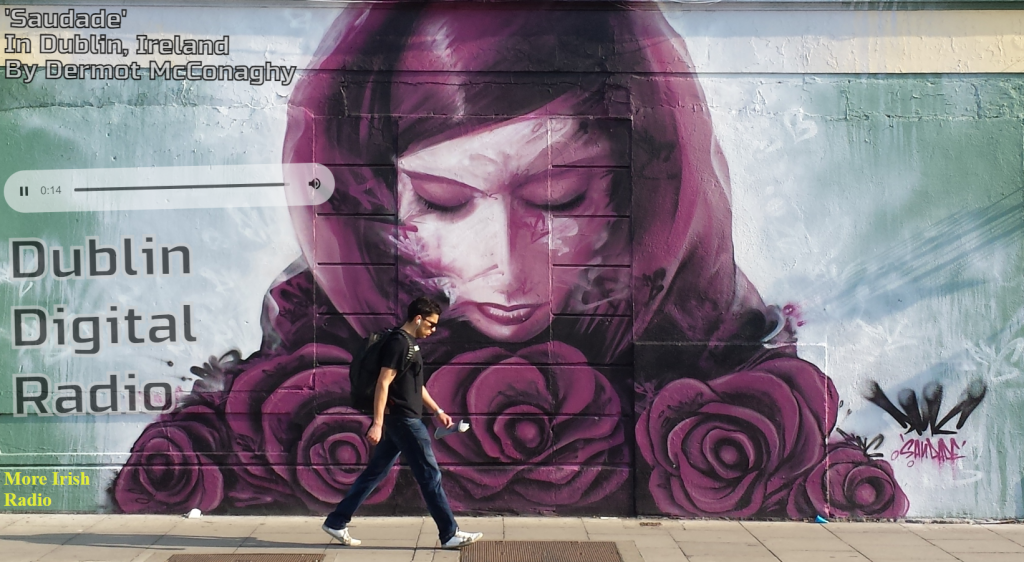
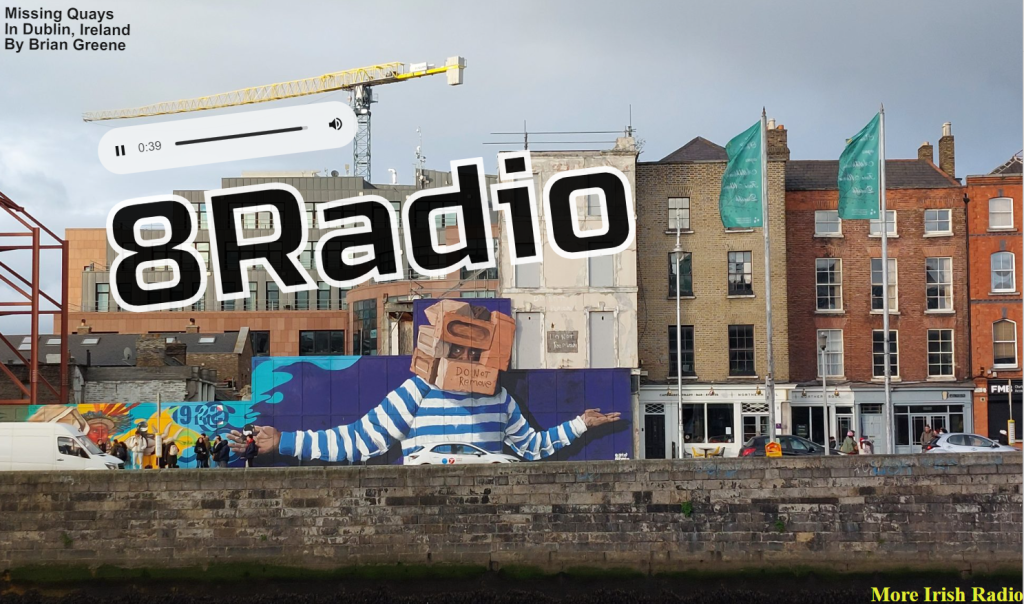
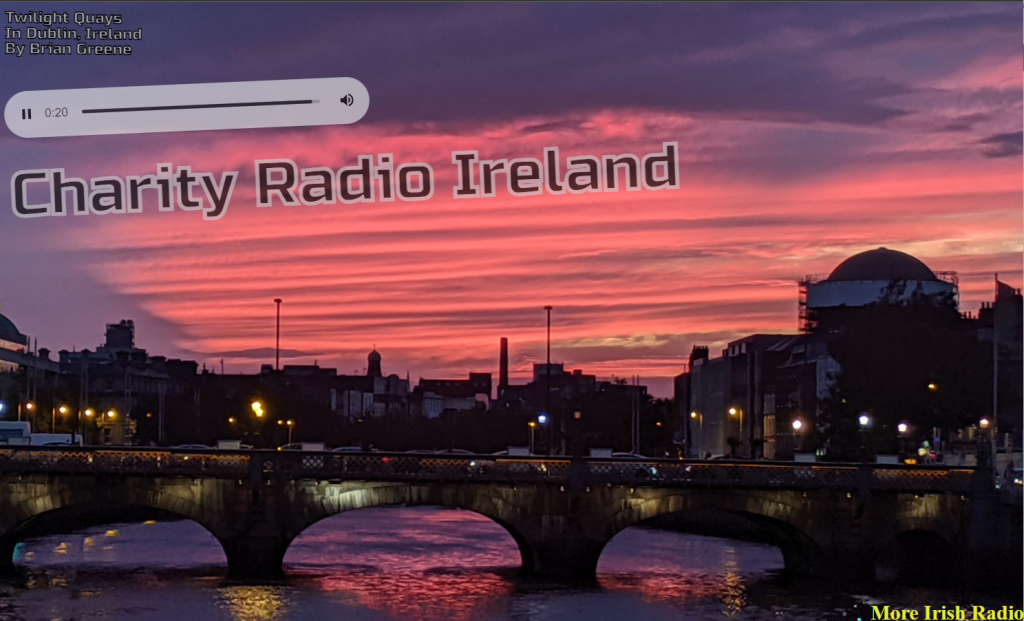

On the Adamant Nicolas Philibert
France, Japan | 109 min | 2022
Synopsis:
The Adamant is a unique day care centre: it is a floating structure. Located on the Seine in the heart of Paris, it welcomes adults suffering from mental disorders, offering them care that grounds them in time and space, and helps them to recover or keep up their spirits. The team running it is one of those that try to resist the deterioration and dehumanization of psychiatry as best it can. The film invites us to board it and meet the patients and caregivers who invent its life day to day.
IFI noon 25/02/2024
The W Cinema – Westport 8:40pm 27/02/2024
Happy World Radio Day 2024. This site as been offline for a few weeks with the teaser that it returns today. What was the tease? Where is the big reveal?
There isn’t a big reveal as once intended. A career move into television in January has had me busy in a new job so for now here is what is new.
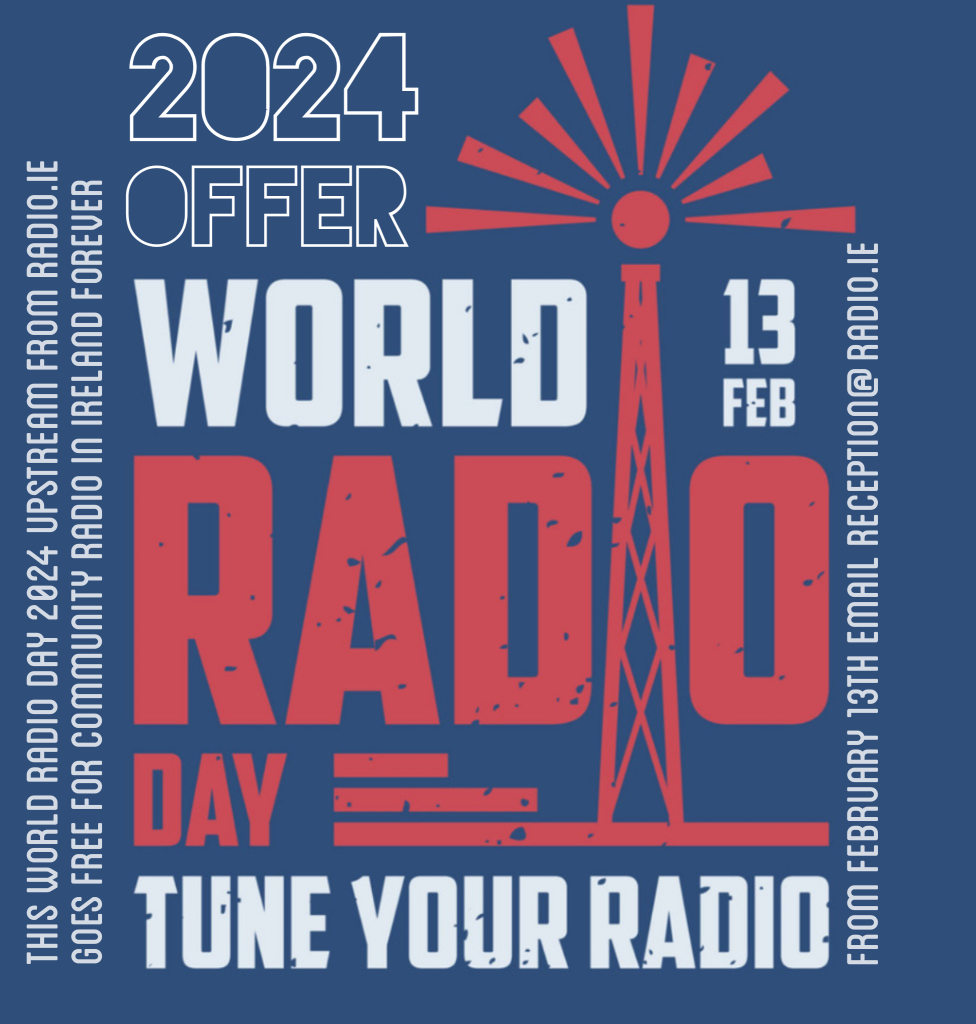
That’s about it except, well, this project now gets serious about being a labour of love. Expect more great things less often 🙂 “take your passion – and make it happen” Irene Cara.
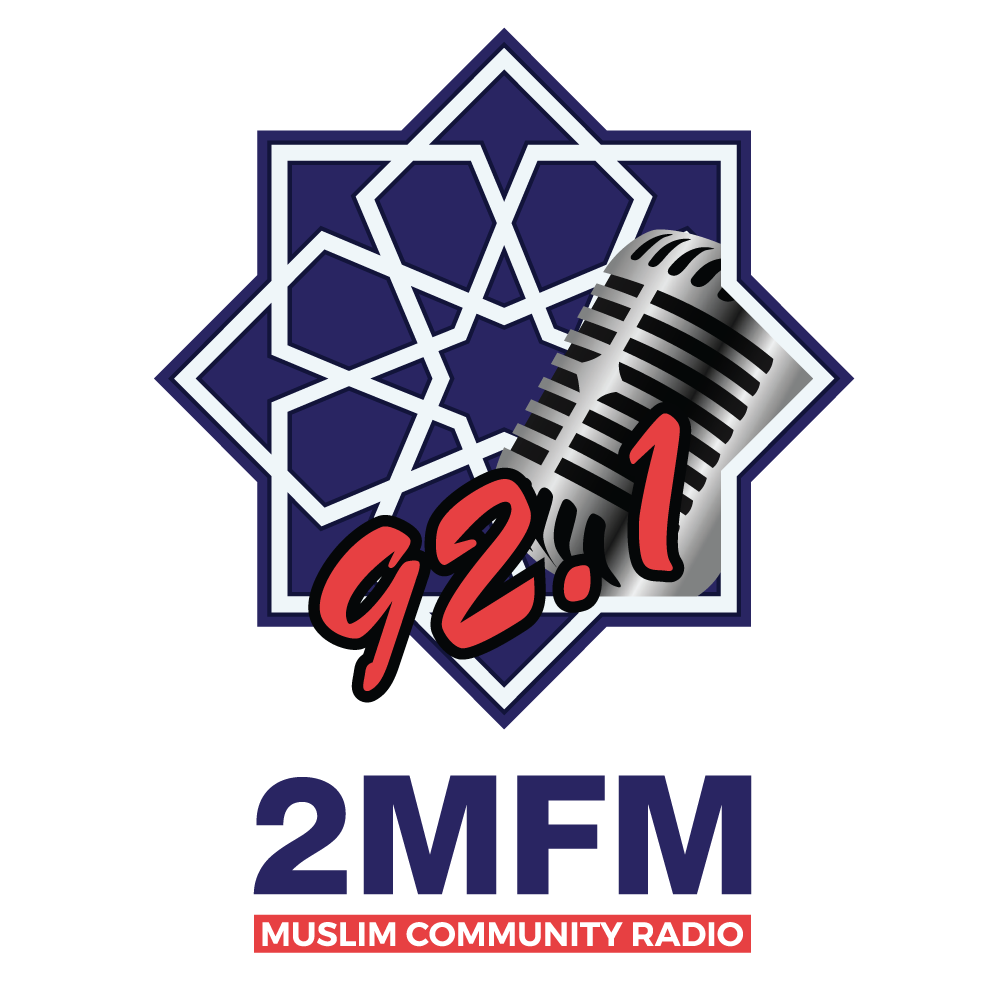
Broadcasts from Bankstown to Sydney, New South Wales Australia. 92.1 FM
Streaming Online 24/7 2MFM is online at http://www.2mfm.org.au/
Recording from stream 14/05/2023
Established in 1995. The Muslim Community Radio is a multicultural and multilingual Islamic radio station. It broadcasts to the Sydney community in general while incorporating elements that target the Islamic community of Sydney. It first transmitted twenty-four hours a day during the month of Ramadan of 1995 and has continued to broadcast during every month of Ramadan and Dhul-hijja (Pilgrimage month). In addition, in 1997 Muslim Community Radio was broadcasting on every Friday of that year until the introduction of the temporary broadcast community license (TBCL). Muslim Community Radio currently broadcasts 24 hours 365 days a year covering all Islamic events. Because Arabic/Lebanese is, according to statistics, the major ethnic language communicated among the Muslims in Sydney, understandably the radio programs are primarily transmitted in the Arabic and English languages with spots of other community languages, evolving in pace with demand.
In January 2021 the Future of Media Commission sought submissions for interested people to shape the future landscape of media in Ireland and from Irish people aboard. 750 submissions were made which is an outstanding number of connections made.
Myself and John Walsh made a submission which calls for the opening up of spectrum to new uses to breathe some life into the grassroots of radio.
Here is a copy of our submission A new community media model from the ground up.
In conclusion we call for the following action points to be addressed as they are essential to a new grassroots public media model:
The first high power transmitting station in Ireland was officially opened by Taoiseach Eamon de Valera in Moydrum, Athlone in 1933. This radio documentary goes back in time to tell the stories about the history of the transmitter in Athlone, memories of locals when radio was called wireless, to the current days when community members make an effort to preserve the site as our national and technical heritage, a site that is still home to the old Marconi’s equipment.
Script: Gearoid O’Brien
Narrator: Phillip Gillen
Produced and edited by Irena Cvetkovic
Contributors: Jim Kearns, Tommy Mollen, Martin Hanley, Margaret Franklin, Geoffrey Foy, Carmel Feeney, Alan Shaw, Ciaran Mollooly and St Mary’s Active Age Group.
This programme was made with the support of the Broadcasting Authority of Ireland
An Athlone Community Radio production
June 19th NCRD 2020 from Community Radio Ireland was hosted by 92.5 Phoenix FM. It was a four hour broadcast that really captured the vibrancy that is the buzz of Community Radio during Covid19 lock down.
The day’s broadcast was streamed in uncompressed audio to participating CRAOL stations around Ireland for simulcasting. The stream was provided by Broadcast Technical Services.
Two reports were launched on the day highlighting Social Benefit outcomes within Community Radio and the communities they serve.
‘Community Radio – Delivering Social Benefit’, as part of its Community Media Action Plan. The publication of the report marks National Community Radio Day and was commissioned by the BAI, supported by Community Radio Ireland (CRAOL) and undertaken by Nexus Research Cooperative.
The report examines the development and implementation of an evaluation methodology that addresses the statutory requirement for community media to deliver a social benefit to the community it serves. It is an abridged version of two reports: ‘Assessing the Benefit of Community Radio, A Toolkit for Community Radio’; and, ‘Introducing a Social Benefit Approach to Community Radio – A Compendium of Stories’, both published by the BAI and CRAOL.
A poem was commissioned for the NCRD 2020. Written by Frank Phelan ‘The Story of We’ is a sharp take on the value that community media is to every community that fosters the medium.
On Thursday 27th February I gave a talk to Raidio Na Life on radio numbers and the youth audience.
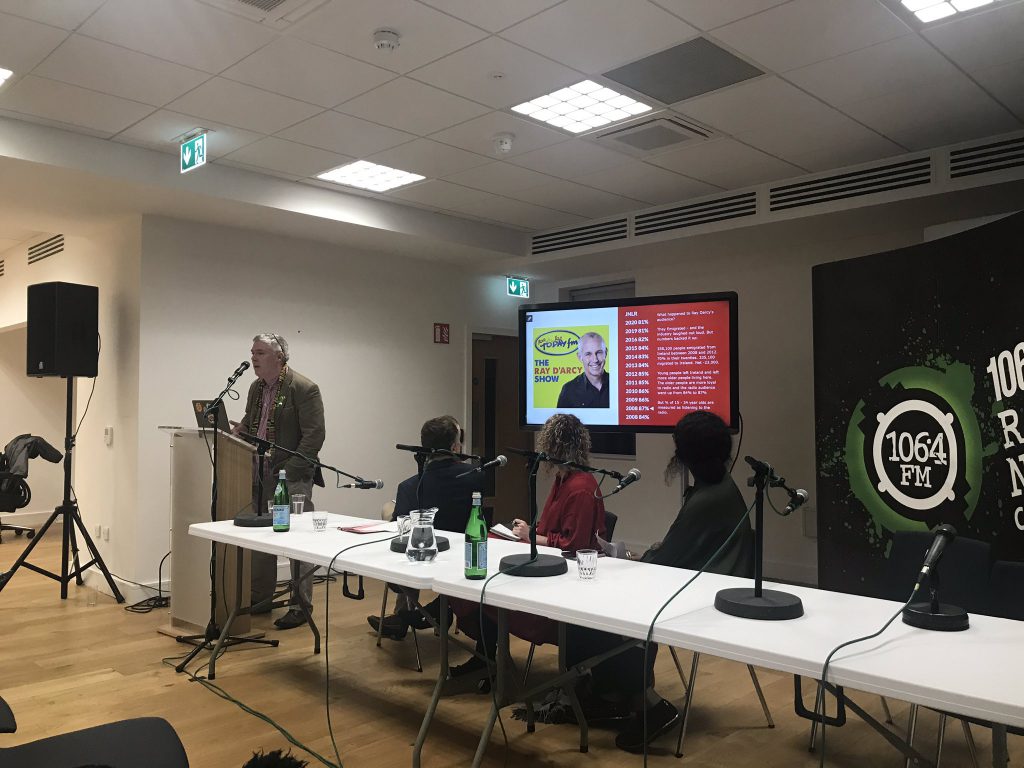
Download the slide deck.
It reminded me of a paper I wrote in 2017 on THE AUDIO LISTENING HABITS OF GENERATION Y&Z.
Radio has adapted from long wave to short wave to medium wave to FM in the 80s. Radio has moved with the technology advances when available, but now radio is blocked from the device by the makers of the device. Radio’s way back into to the smartphone is via streaming, but now the competition isn’t the 20 local market stations on the regulated radio band but tens of thousands of stations from all over the world, podcasts and streaming music services.
Audience changes its relationship with radio when the equipment changes.
The research was a focus group of 5 people in the ages covering generation Y&Z. It throws up some interesting ideas on media consumption of the youth of today.
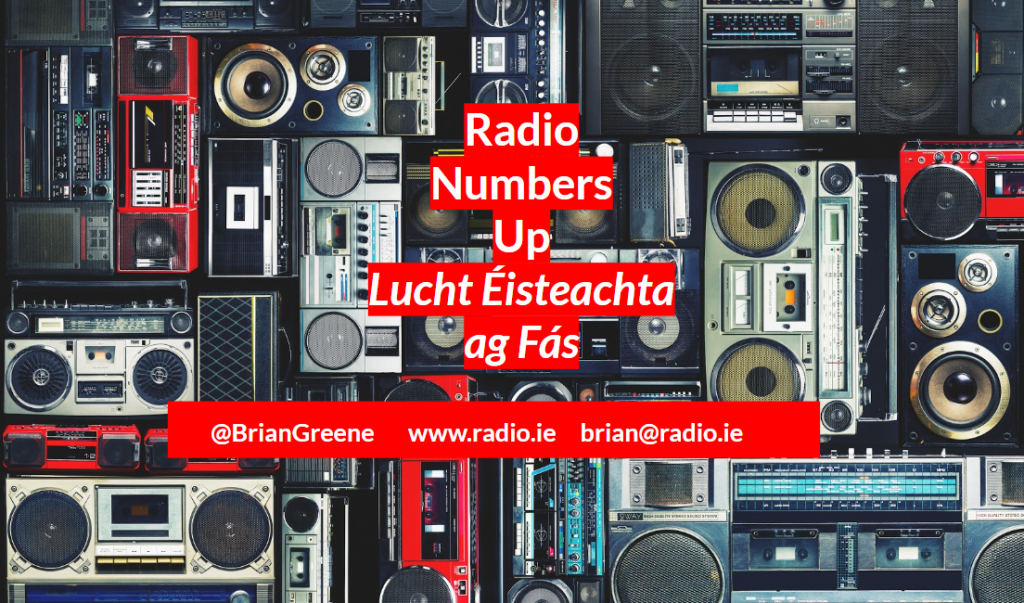

Free Palestine